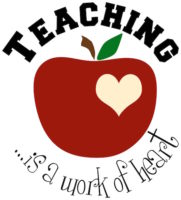The ability to critically think does not develop in children until around age 12. It begins after the child’s fundamentals are drilled into them. We used to understand this basic principle of education. This is why classical education was so effective. It was also why prior generations of Americans were so successful in life. The educational ‘Elites’ decided that a population that was able to critically think was too difficult to control. They changed our education system to remove critical thinking. Our children have suffered for their arrogance. It is time to take an active role in the education of your children. ~ Rosemary Stein, MD
 By now it’s old news that many Americans can no longer think for themselves. True, they have strong opinions, but often those opinions are influenced by prominent leaders and can turn around as quickly as the winds of political favor.
By now it’s old news that many Americans can no longer think for themselves. True, they have strong opinions, but often those opinions are influenced by prominent leaders and can turn around as quickly as the winds of political favor.
Unfortunately, such a state is likely driven by the education system. Although schools purport to be fans of “critical thinking,” many schools no longer teach the philosophy or logic classes which were once a prominent part of high school education.
But one college professor is seeking to change this. Writing in The Chronicle of Higher Education, Leonard Cassuto tells the story of Marcello Fiocco, a professor at the University of California at Irvine. Fiocco is taking his graduate students and heading to elementary schools to introduce young children to philosophy:
“Fiocco’s project is called TH!NK. It’s a simple design: A philosopher visits the same group of grade-school students weekly for four weeks, for an hour or so each time. The philosopher reads a short piece aloud — usually a story — and then leads a philosophical discussion with the children based on the story. A typical question, Fiocco told me, might be, ‘Can we have shape without color?’ Or, following from an excerpt from The Little Prince, the discussion leader might ask, ‘Could you own the moon?’
The children respond eagerly to these challenges. ‘They all seem so excited to provide answers or get to the bottom of debates, and it is a joy to see,’ Kourosh Alizadeh, a graduate student in philosophy, wrote in an email. ‘We keep pushing them,’ said Fiocco. ‘We keep asking them, “Why?”’ Fiocco recalled one fifth grader exclaim, ‘I’m thinking so much my brain hurts!’”
According to those who have watched the program grow, these early flights in philosophy help students “to make better and more rational decisions about how to live their lives.” In other words, such classes are teaching students not what to think but how.
In 1947, academic Dorothy Sayers sounded a warning about modern education, noting that schools were doing the complete opposite. Her famous essay, The Lost Tools of Learning, describes it in the following way:
“Is not the great defect of our education today–a defect traceable through all the disquieting symptoms of trouble that I have mentioned–that although we often succeed in teaching our pupils ‘subjects,’ we fail lamentably on the whole in teaching them how to think: they learn everything, except the art of learning.”
She goes on to say:
“[M]odern education concentrates on ‘teaching subjects,’ leaving the method of thinking, arguing, and expressing one’s conclusions to be picked up by the scholar as he goes along; mediaeval education concentrated on first forging and learning to handle the tools of learning, using whatever subject came handy as a piece of material on which to doodle until the use of the tool became second nature.”
If we want to turn our students into independent, responsible adults, then is it time we moved away from simply cramming their heads with material to pass the test, and instead taught them how to think in a creative, logical fashion?
Written by Annie Holmquist and published by Intellectual Takeout ~ November 29, 2017.
 FAIR USE NOTICE: This site contains copyrighted material the use of which has not always been specifically authorized by the copyright owner. We are making such material available in our efforts to advance understanding of environmental, political, human rights, economic, democracy, scientific, and social justice issues, etc. We believe this constitutes a ‘fair use’ of any such copyrighted material as provided for in section 107 of the US Copyright Law. In accordance with Title 17 U. S. C. Section 107, the material on this site is distributed without profit to those who have expressed a prior interest in receiving the included information for research and educational purposes. For more information go to: http://www.law.cornell.edu/uscode/17/107.shtml
FAIR USE NOTICE: This site contains copyrighted material the use of which has not always been specifically authorized by the copyright owner. We are making such material available in our efforts to advance understanding of environmental, political, human rights, economic, democracy, scientific, and social justice issues, etc. We believe this constitutes a ‘fair use’ of any such copyrighted material as provided for in section 107 of the US Copyright Law. In accordance with Title 17 U. S. C. Section 107, the material on this site is distributed without profit to those who have expressed a prior interest in receiving the included information for research and educational purposes. For more information go to: http://www.law.cornell.edu/uscode/17/107.shtml

Today I discovered a victory – a single, yet significant victory as I found out that a reader who has been receiving our daily postings through another individual who has a ‘list’ – was so influenced by that which we post at MetropolisCafe.US – that she made a decision to remove her children from the public Fool system and is now deeply involved with taking back their lives – or should I say – giving them back.
To think for myself. To defend my thoughts. From myself, and others. To defend MY thoughts, from reason, and logjc, and rationality. And to find my thoughts reasonable, and logjcal, and rational. To be me; a thinking, being person. In a school of thinking, being, persons.
An educated person. Drawn to further understanding, by you, who are wise, and, experienced.
Are you experienced?